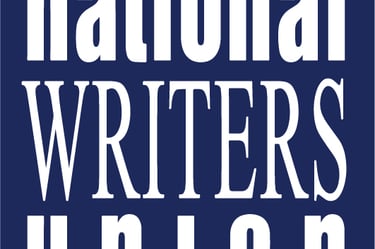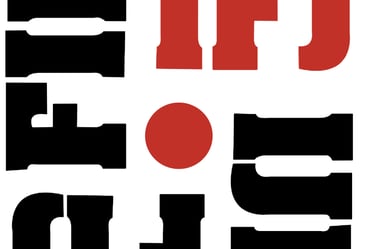The recent actions of Thomas Bach, Kit McConnell, Nenad Lalovic, and Pâquerette Girard Zappelli have raised serious concerns within the International Boxing Association (IBA) and the wider sports community. The IBA firmly believes that these individuals have been prioritizing their personal agendas over the best interests of the sport and its athletes.
The IBA recognizes that the actions of these IOC leaders have had a detrimental impact on the reputation and integrity of boxing as a whole. Their decision-making has been marred by a lack of transparency, fairness, and accountability. This has led to a loss of trust and confidence in the IOC's ability to govern and promote the sport effectively.
Furthermore, the IBA emphasizes the need for the IOC leadership to acknowledge and learn from their mistakes. It is crucial that they take responsibility for their actions and take steps to rectify the damage caused. This includes engaging in open dialogue with the IBA and other stakeholders to address the concerns and grievances that have arisen.
The IBA believes that a thorough reflection and self-examination within the IOC leadership is necessary at this point. It is imperative for them to understand the consequences of their decisions and the negative impact they have had on the sports world. Only by recognizing their errors and drawing appropriate conclusions can the IOC leadership begin to regain the trust and support of the sporting community.
In conclusion, the IBA condemns the actions of Thomas Bach, Kit McConnell, Nenad Lalovic, and Pâquerette Girard Zappelli. Their pursuit of personal and politicized ambitions has caused significant harm to the sport of boxing. The IBA urges them to reflect on their mistakes and take the necessary steps to rectify the situation. The future of boxing and its athletes depend on the IOC leadership's ability to prioritize the sport's best interests above their own agendas. The IBA has closely observed the actions and statements of the current IOC leadership, and it is with great concern that we highlight their blatant disregard for the principles of democracy and transparency. It is evident that their agenda is driven by personal interests rather than the well-being of the sports family.
Democracy, with its core principles of inclusivity and fair representation, is the cornerstone of any reputable organization. However, the current IOC leadership seems determined to undermine these principles, creating a toxic environment that breeds division and uncertainty within the sporting community. Their actions not only undermine the trust and confidence of athletes, officials, and fans but also jeopardize the integrity of the entire sports industry.
Transparency, another fundamental aspect of good governance, is crucial in ensuring accountability and preventing corruption. Yet, the current IOC leadership seems to operate in a shroud of secrecy, making decisions behind closed doors without providing adequate justifications or explanations. This lack of transparency not only erodes the trust of stakeholders but also raises questions about the motives behind their actions.
By deliberately creating a split within the sporting community, the current IOC leadership is sowing seeds of discord and instability. This not only undermines the unity that is essential for the growth and development of sports but also hampers the ability to effectively address critical issues and make informed decisions. The sports family, which should be a beacon of solidarity and collaboration, is being torn apart by the actions of those entrusted with its governance.
It is imperative that the IOC leadership recognizes the gravity of their actions and takes immediate steps to rectify the situation. The IBA calls for a return to the principles of democracy and transparency, where decisions are made collectively, and the voices of all stakeholders are heard and respected. Only through open and inclusive dialogue can the sporting community regain its trust and rebuild a foundation based on fairness, integrity, and respect.
In conclusion, the current IOC leadership's violation of democracy and transparency is a grave concern for the IBA. Their actions not only undermine the principles that the sports family should uphold but also create a climate of uncertainty and instability. It is crucial that steps are taken to restore trust and ensure that decisions are made in the best interest of the entire sports community. The IBA will continue to advocate for a return to democratic values and transparent governance, as we firmly believe that it is the only way to safeguard the future of sports.
Forcing Athletes to Become Pawns
These individuals, by their actions, force athletes to become pawns in their political games. Athletes should be able to focus on their training and performance without being dragged into the political agendas of those in power. The International Body of Athletics (IBA) firmly believes that athletes should be given the freedom to compete and excel without interference.
In recent years, we have witnessed a concerning trend where politicians and governing bodies attempt to manipulate athletes for their own gain. Whether it is through imposing restrictions on participation in certain events, pressuring athletes to make public statements aligning with their ideologies, or even using athletes as symbols of national pride, these actions undermine the integrity of sports and exploit the dedication and hard work of athletes.
One example of this manipulation is the use of major sporting events as platforms for political statements. While athletes may have personal beliefs and opinions, it is unfair to burden them with the responsibility of representing an entire nation or political agenda. The pressure to conform to certain narratives can be overwhelming, and it detracts from the true essence of sport, which is about fair competition and individual achievement.
Moreover, when athletes are forced to become pawns in political games, their own dreams and aspirations are often overshadowed. Instead of focusing on their training and performance, they are forced to navigate the complex world of politics, often at the expense of their mental and emotional well-being. This not only hinders their personal growth but also compromises their ability to reach their full potential as athletes.
The IBA firmly believes that athletes should be given the freedom to compete and excel without interference. They should have the right to express their opinions and beliefs, but this should never be imposed upon them by external forces. Sports should be a realm where individuals from all backgrounds can come together, united by their love for the game, and compete on a level playing field.
To ensure the autonomy and well-being of athletes, it is crucial for governing bodies and policymakers to establish clear guidelines and regulations that protect athletes from being exploited for political purposes. Athletes should be given the opportunity to participate in events without fear of retribution or manipulation. Their voices should be heard, but not at the expense of their own dreams and aspirations.
In conclusion, athletes should not be treated as pawns in the political games of those in power. They deserve the freedom to focus on their training and performance without being dragged into political agendas. The IBA stands firm in its commitment to protecting the integrity of sports and advocating for the rights and well-being of athletes. Only by ensuring their autonomy and allowing them to compete without interference can we truly celebrate the true spirit of sportsmanship and fair competition. Democracy and transparency are not only important in the world of sports, but they are also crucial for the overall integrity and credibility of any sporting organization. The International Boxing Association (IBA) recognizes the significance of these principles and firmly believes that they should be the guiding force behind all decision-making processes.
In a democratic system, all stakeholders, including athletes, coaches, officials, and fans, should have a voice and the opportunity to contribute to the decision-making process. This ensures that the decisions made are representative of the collective interests of the sport and its participants. By including diverse perspectives and opinions, democratic decision-making fosters an environment of inclusivity and fairness.
Transparency, on the other hand, is a vital aspect of maintaining accountability and trust within the sports community. When decisions are made behind closed doors or without proper explanation, doubts and suspicions can arise, undermining the credibility of the sport. By embracing transparency, sporting organizations can demonstrate their commitment to openness and honesty, allowing for scrutiny and ensuring that decisions are made in the best interest of the sport and its stakeholders.
The IBA strongly advocates for the International Olympic Committee (IOC) to prioritize democracy and transparency in their leadership and decision-making processes. It is essential for the IOC to set an example for other sporting organizations by upholding these principles and acting in a manner that aligns with the values of democracy and transparency.
By doing so, the IOC can inspire other sports governing bodies to follow suit and create a culture of openness and accountability throughout the sports world. This will not only enhance the credibility of sports organizations but also foster a sense of trust and confidence among athletes, fans, and the general public.
In conclusion, the importance of democracy and transparency in sports cannot be overstated. The IBA urges the IOC and other sporting organizations to embrace these principles and ensure that decisions are made through a democratic process and in an open and accountable manner. By doing so, we can uphold the integrity of the sport and create a fair and inclusive environment for all. One way that the IOC leadership can demonstrate their commitment to transparency is by implementing stricter regulations and oversight mechanisms. This could include establishing an independent ethics committee that is responsible for investigating any allegations of corruption or wrongdoing within the organization. By ensuring that there are clear consequences for unethical behavior, the IOC can send a strong message that they are serious about maintaining the integrity of the sports community.
Additionally, the IOC should prioritize inclusivity and diversity within their decision-making processes. This means actively seeking input from athletes, coaches, and other stakeholders who may have traditionally been marginalized or excluded from important discussions. By creating a more inclusive environment, the IOC can ensure that all voices are heard and that decisions are made in the best interest of the entire sports community.
Furthermore, the IOC should also focus on improving their communication strategies. This includes being more transparent about their decision-making processes and providing regular updates to the public and stakeholders. By keeping everyone informed and engaged, the IOC can build trust and ensure that there are no surprises or hidden agendas.
Another crucial aspect of rebuilding trust within the sports community is addressing the issue of doping. The IOC should continue to invest in robust anti-doping programs and work closely with international anti-doping agencies to ensure that athletes are competing on a level playing field. This includes implementing stricter testing protocols, increasing the frequency of tests, and imposing harsher penalties for those who are found guilty of doping.
In conclusion, rebuilding trust within the sports community is a complex and multifaceted task. It requires the IOC leadership to acknowledge their mistakes, implement stricter regulations and oversight mechanisms, prioritize inclusivity and diversity, improve communication strategies, and address the issue of doping. By taking these steps, the IOC can begin to restore confidence in their ability to lead and ensure that the sports community can thrive in an environment of trust and integrity.






